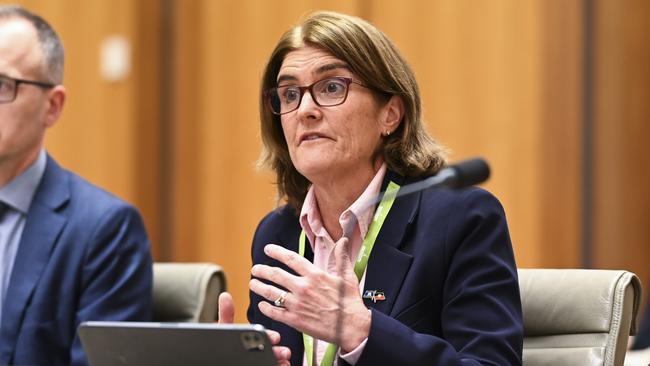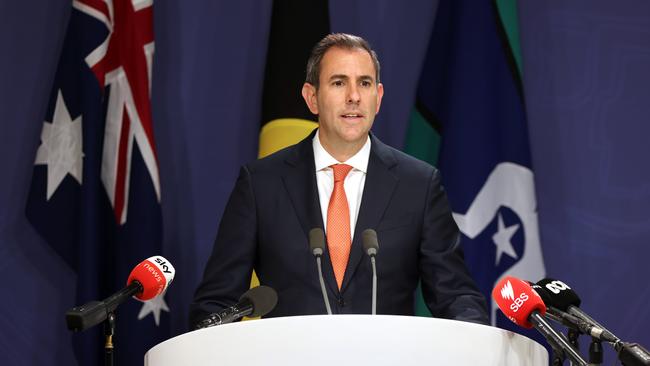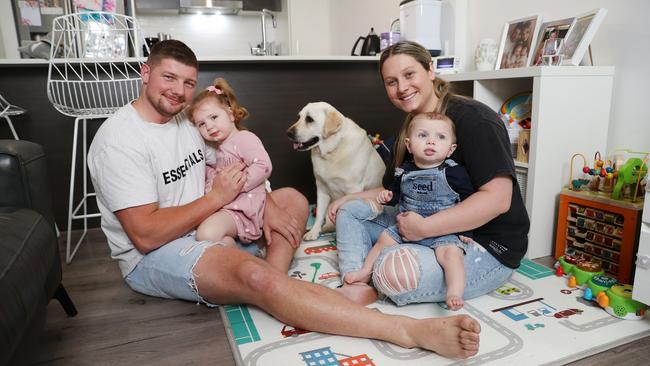Sydney couples need to earn $250k a year to afford a home
After the RBA’s decision to raise interest rates again, couples need to be bringing in a quarter of a million dollars a year to be able to afford the average Sydney house.
NSW
Don't miss out on the headlines from NSW. Followed categories will be added to My News.
A Sydney family now needs an annual income of more than $250,000 to buy the average home.
Federal Treasurer Jim Chalmers said the Reserve Bank of Australia’s decision to raise rates for a 13th time in 18 months would “tighten the screws” on households already under intense financial pressure, while retailers warned of dire consequences for the Christmas shopping season and industry groups suggested a recession was on the cards.
New RBA Governor Michele Bullock said the central bank board decided to hike by 0.25 percentage points after a four-month pause because inflation “is still too high and is proving more persistent than expected.”
Ms Bullock indicated the RBA is now anticipating inflation will be at 3.5 per cent in December next year, up from a previous prediction of 3.25 per cent.
At the moment, inflation is running at 5.4 per cent. The RBA’s goal is to get that down to under 3 per cent in 2025.

Royal Bank of Canada Capital Markets economist Robert Thompson said “we think the risk of an extended inflation overshoot may well demand further tightening” some time between next month and May. Mr Thompson also dumped his forecast for 50 basis points of cuts in late 2024.
The RBA is now out of step with other western nations’ central banks. After raising by more, their next moves are expected to be down.
New research from comparison service Finder shows a Sydney couple would now need to earn $262,000 to manage the mortgage on the city’s average home. And that’s if they have a 20 per cent deposit.
Finder spokesman Taylor Blackburn said two people on average incomes would be able to afford the typical Sydney unit – just.
“But they are not sniffing the average home,” Mr Blackburn said.
“What we are seeing, more and more, is that if you don’t have the luxury of the bank of mum and dad, people are having to move out of the capital cities to secure a house.”

Finder’s calculations were based on an average Sydney house price of $1.33m and $755,000 for units. It used the national average earnings figure of $96,000. In NSW, the average is $100,000.
The news is just as bad for people who are repaying a loan.
The latest rate increase will add a further $76 a month to repayments on a $500,000 mortgage and double that on a $1 million home loan.
Once lenders pass on the hike, the vast majority of western Sydney householders with a mortgage will be in the red.
According to analysis by Digital Finance Analytics, 87 per cent of borrowers in Blacktown will be spending more than they are earning.
More than 95 per cent of those with a home loan in Campbelltown will be financially under water. In Fairfield, the figure is about 80 per cent.
Roselands homeowners Tiarne Carden and Ryan Kenny were dreading further RBA action.
“We are already paying double compared to what we were last year,” Ms Carden said.
Going out for a meal is now a luxury beyond the family budget.
“We just stay home and cook everything,” Mr Kenny said.

The first question put to Dr Chalmers at a media conference following the latest hike was whether his recent comments about inflation had backed the “RBA into a corner where it thought it had to raise rates or lose credibility.”
Dr Chalmers responded: “Of course not. I reject that completely.”
Last month he said the latest inflation numbers did not “materially change” the outlook, which was interpreted as a message to leave rates on hold.
The Australian Industry Group CEO Innes Willox said the RBA’s intervention had raised “the chances that the sought-after soft landing will tip into a downturn in 2024.”
Australian Retailers Association chief Paul Zahra described the move as a “significant blow … heading into the all-important Christmas and holiday trading period.”




